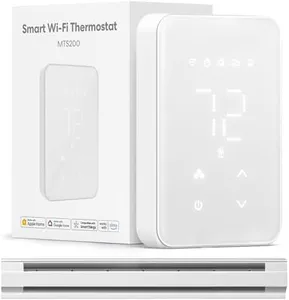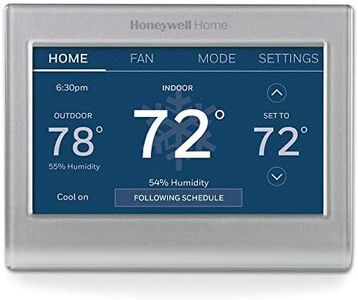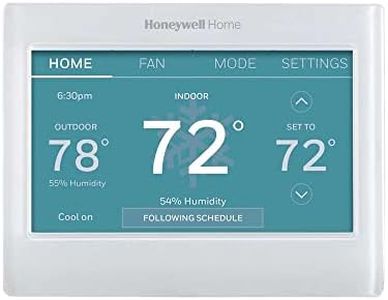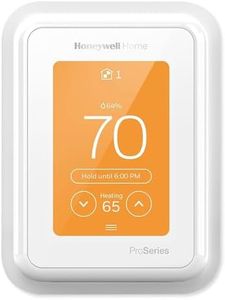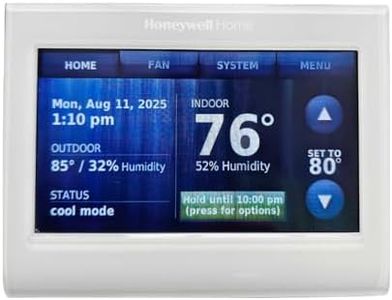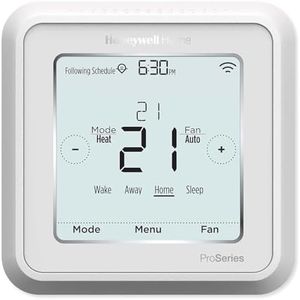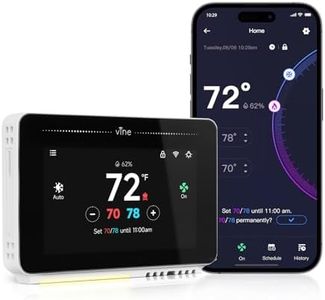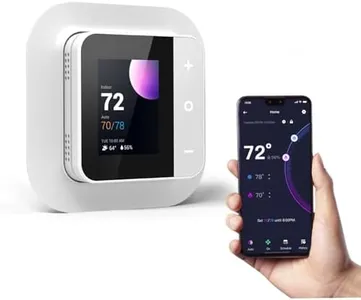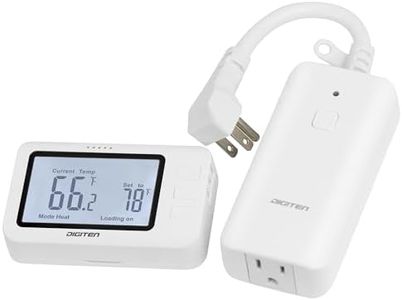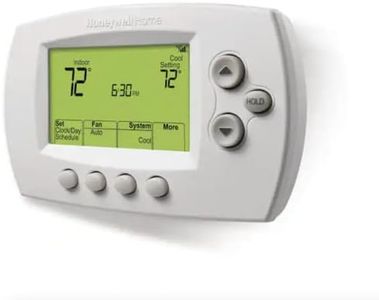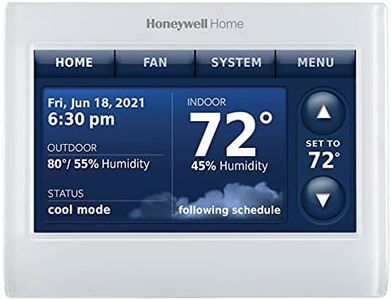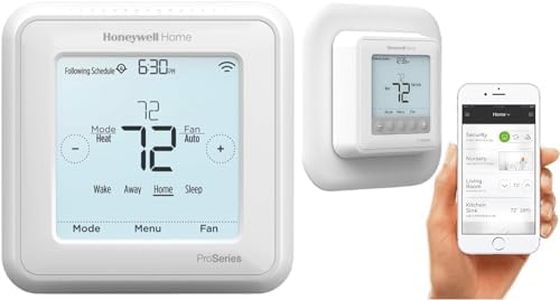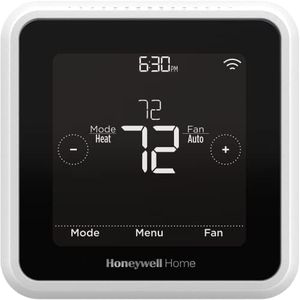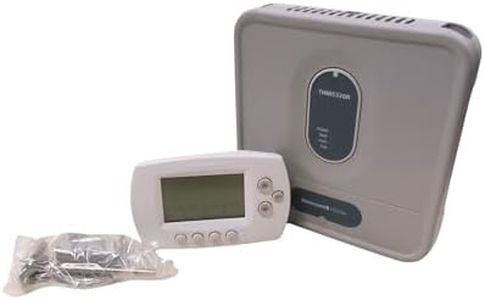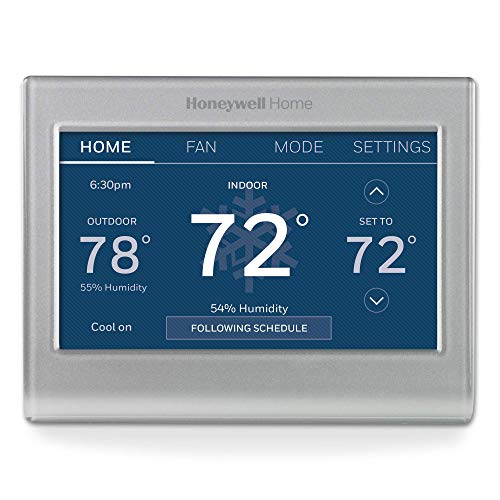10 Best Honeywell Smart Thermostats 2025 in the United States
Our technology thoroughly searches through the online shopping world, reviewing hundreds of sites. We then process and analyze this information, updating in real-time to bring you the latest top-rated products. This way, you always get the best and most current options available.

Our Top Picks
Winner
Honeywell Home RTH9585WF1004 Wi-Fi Smart Color Thermostat, 7 Day Programmable, Touch Screen, Energy Star, Alexa Ready, Gray
Most important from
17818 reviews
The Honeywell Home RTH9585WF1004 is a solid choice in the smart thermostat market, particularly for those looking for a programmable and user-friendly device. One of its standout features is its compatibility with various smart home ecosystems like Alexa, Google Home, and SmartThings, making it a versatile option for connected homes. The customizable color touchscreen is intuitive and displays easy-to-read information, including local weather updates and humidity levels, enhancing the user experience.
Users will appreciate the energy-saving capabilities, as this thermostat is Energy Star certified and offers flexible scheduling that can adapt to utility peak pricing. The intelligent alerts for maintenance, like air filter changes, are also a helpful addition, promoting efficient home management.
However, while it boasts many strengths, there are a few drawbacks to consider. Some users might find the initial setup process a bit challenging, especially if they are not familiar with smart devices. Additionally, the Wi-Fi connectivity is limited to 2.4GHz, which may not provide the same speed found in newer 5GHz networks, potentially affecting real-time updates. The warranty period is just one year, which is shorter compared to other brands that may offer extended warranties. Also, while the interface is generally user-friendly, there are indications that the touchscreen may not always be responsive, which can be frustrating.
Most important from
17818 reviews
Honeywell Home RTH9600WF Smart Color Thermostat ENERGY STAR Wi-Fi Programmable Touchscreen Alexa Ready - C-Wire Required
Most important from
1373 reviews
The Honeywell Home RTH9600WF Smart Thermostat is a solid choice for users looking to enhance their home's heating and cooling efficiency. Its ENERGY STAR certification signifies that it helps reduce energy consumption, and it offers useful features like energy reports and personalized energy-saving tips. One of its major strengths is the ability to control the thermostat remotely via a smartphone app or compatible smart home devices like Amazon Alexa and Google Assistant, making it highly convenient for tech-savvy homeowners.
The customizable color touchscreen adds a touch of personalization, allowing users to match it with their home decor. Additionally, the on-screen display provides indoor and outdoor temperature readings, humidity levels, and daily weather forecasts, which many users find beneficial for maintaining comfort.
However, potential buyers should be aware of a few limitations. The thermostat requires a C-wire for installation, which might necessitate an additional power adapter if your home isn’t already set up for it. This could be a drawback for those with older heating systems or those who don't have a C-wire readily available. Moreover, while the compatibility covers various heating setups, it notably excludes electric baseboard heating systems, which can restrict its usability in some households.
Most important from
1373 reviews
Honeywell Home-Resideo T10+ Pro Smart Thermostat Without Sensor (THX321WF3003W)
Most important from
38 reviews
The Honeywell Home-Resideo T10+ Pro Smart Thermostat is a solid choice if you want advanced control over your home's climate. It is compatible with various heating systems, including conventional and heat pumps, especially when used with the Equipment Interface Module (EIM), which also helps manage humidifiers, dehumidifiers, and ventilation. This makes it suitable for those looking for more than just temperature control.
It connects via Wi-Fi, allowing you to control it easily through an app on your phone, and works well with smart home systems like Alexa, Google Assistant, and Apple Home, making voice control simple. The display is user-friendly, with features like adjustable brightness and a dark mode that saves power and reduces screen glare. One standout feature is the customizable fallback room sensor, which ensures the thermostat keeps working smoothly even if some sensors lose connection.
This thermostat is ideal for users who want reliable, customizable climate control with good smart home integration but do not require adaptive learning or extensive energy tracking.
